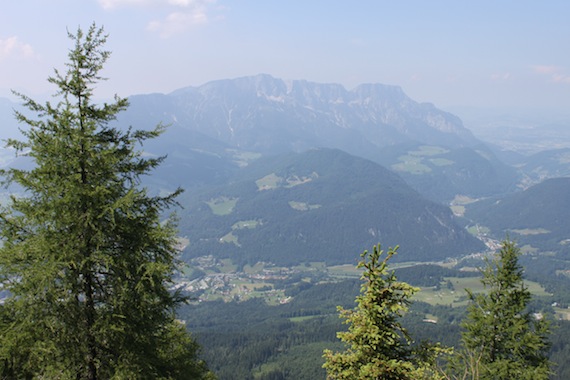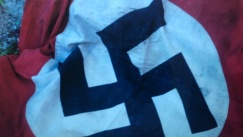
The Untersberg – mountain of myth
70 years ago, Adolf Hitler stood on the terrace of his house, the Berghof, above Berchtesgaden in southern Germany, and contemplated this view. The massive Untersberg, directly in front of him, was the mountain in which legend said that the Emperor Charlemagne slept, ready one day to rise again.
And in 1940, Hitler believed that a decision he had just reached would make him greater than Charlemagne, the man who created the German monarchy, greater indeed than any German who had ever lived. Because Hitler – and Hitler alone – had decided that Germany should invade the Soviet Union. With hindsight it seems to have been a catastrophic decision – one that led directly to Germany’s defeat. But that was not how most people saw it at the time. In fact, most German Generals thought that the decision to invade France in May 1940 had been much more risky – and that had brought victory in six weeks.
How much resistance could the Red Army – weakened by Stalin’s purges in the 1930s and broken by failures during the Winter war against Finland a few months before – actually put up? Well, most informed opinion agreed with General Jodl of the German High Command who said the Soviet Union would be ‘proved to be a pig’s bladder; prick it and it will burst.’
It’s another warning, it seems to me, of the danger of reading history backwards – once we know the result. Because if you imagine what options Hitler had in 1940, as he stared out for inspiration at the Untersberg, then – from his point of view – the ‘mad’ decision to invade the Soviet Union seems almost ‘sensible’. The fundamental problem he faced, of course, was that Winston Churchill would not do what the Nazis considered was the ‘logical’ thing and make peace. Churchill despised Hitler and all he stood for. He would never come to any arrangement that suited the Nazis.
So how to defeat Churchill? British victory in the Battle of Britain had already dashed what slim chance there had ever been of a successful landing on the English beaches in 1940, and in September 1940 the Americans had agreed to give Britain 50 destroyers in exchange for access to various naval bases. This was hugely significant – less because of the scale of the deal, but because it demonstrated to the Germans that America would support Britain militarily.
It all added force to the view Hitler had expressed to his Generals, here in Bavaria, back in July 1940 that – paradoxically – the best way to defeat Britain was by defeating the Soviet Union first. Britain’s greatest ‘hope’ in Europe, Hitler said, was the thought that one day Stalin would break his non aggression pact with the Nazis and come to Churchill’s aid. Crushing the Soviet Union would also make available huge amounts of raw materials that Germany lacked, as well as fulfilling Hitler’s long desired goal of ‘Lebensraum’ – an Empire in the East. Thus Hitler’s Generals, in 1940, made no protest. They agreed to lead an invasion of the Soviet Union in 1941.
They would have all stood on the terrace of the Berghof, in the summer of 1940, and gazed out at the mysterious Untersberg – a mountain rich in myth and legend. What were they thinking? Of glory and of victory, no doubt, but perhaps they also had a fleeting thought of another ruthless conqueror. Not the Emperor Charlemagne who supposedly slept deep within the Untersberg in front of them, but the Emperor Napoleon. A man who, like Hitler, had believed that conquering Russia seemed the “sensible” thing to do.
 Twitter
Twitter





